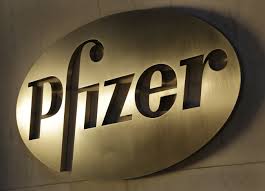Amerikan ilaç devi Pfizer, Alzheimer ve Parkinson’s hastalıkları için yaptığı araştırmaları sonlandırma kararı aldığını açıkladı.
Yapılan açıklamada sonuçsuz kalan ilaç araştırmaları sırasında milyarlarca doların harcandığı da belirtildi.
Firma kaynaklarını sonuç alınması daha muhtemel alanlara aktaracaklarını duyurdu.
Son 6 yıl içinde final evresine kadar ulaşmayı başaran ilaçlar olmuş ancak son aşamada işe yaramadıkları görülmüştü.
Bu ilaçlar arasında Roche tarafından geliştirilen gantenerumab, Eli Lily tarafından geliştirilen solanezumab ve Pfizer tarafından deneyleri yapılan bapineuzumab da bulunuyordu.
Uzmanlar bu aşamaya gelen bir ilaç için yaklaşık 2 milyar dolarlık bir harcama yapıldığını ortaya koyuyor.
Pfizer’ın bu alandaki araştırmaları sonlandırma kararı ise tıp çevrelerinde “hayal kırıklığı” yaratmış durumda.
The Times gazetesine konuşan İngiltere Alzheimer Araştırmaları kurumundan Matthew Norton, “İlaç firmalarının uzun vadeli düşünerek demans araştırmalarına devam edeceklerini umuyorum” dedi.
Bu durum nadir nörolojik hastalıklar için ilaç araştırmasını etkilemeyecek.
Pfizer Inc. PFE 0.19% on Saturday said it would stop trying to discover new drugs for Alzheimer’s disease and Parkinson’s disease, abandoning costly but futile efforts to find effective treatments for the disorders.
The cutback will result in layoffs of 300 employees in Cambridge and Andover in Massachusetts and in Groton, Conn., over several months, according to a company statement.
The restructuring won’t affect later-stage drug development for pain treatments Lyrica and tanezumab, or research into drugs for rare neurological diseases, Pfizer said.
The company plans to use the savings to fund drug R&D in other areas. “This was an exercise to reallocate [spending] across our portfolio, to focus on those areas where our pipeline, and our scientific expertise, is strongest,” it said.
Like several peers, Pfizer has invested heavily in developing treatments for Alzheimer’s and Parkinson’s because of the huge need. About 5.5 million Americans have Alzheimer’s, and the numbers are expected to rise as the population ages. Analysts say successful treatments for the memory-robbing disease could have multibillion-dollar sales potential.
But promising compound have repeatedly failed to work during testing.
Notably, in 2012, Pfizer and partner Johnson & Johnson halted development of an Alzheimer’s drug called bapineuzumab after it failed to slow memory loss in test subjects.
The most recent disappointment took place last year, when a closely watched study of a treatment from Axovant Sciences Inc. called intepirdine failed to improve memory and learning in Alzheimer’s patients.
Advances understanding the biology and chemistry of the brain, as well as imaging it, give many researchers confidence that treatments will come.
Some big drugmakers, such as AstraZeneca PLC, Biogen Inc. and Eli Lilly & Co., keep pursuing Alzheimer’s treatment despite setbacks, though analysts consider the projects very risky.
Much of the early drug research is now in the hands of startups established in the past few years, including some led by former executives and scientists from big drug companies.
Venture investment in neuroscience companies was nearly $1 billion, or 42%, higher from 2012 to 2016 compared with the five-year period prior, according to the LifeSciVC blog by a venture-capital executive whose firm has funded such companies.
Write to Jonathan D. Rockoff at [email protected]




















